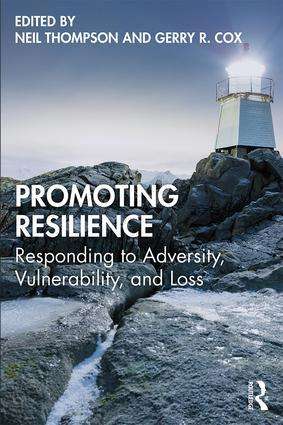Messages on self-care and resilience from Neil Thompson, BASW Cymru Ambassador.
Self-care and resilience – needed more than ever now?
All forms of work involve emotional demands, but there is a broad spectrum of such demands, ranging from minor to major. Social work tends to be to be at the major end of that spectrum, which is why self-care has featured a great deal in my work over the years, reflecting the basic principle that we cannot safely care for others if we do not care for ourselves. Note the key word: safely. It is dangerous to ignore our own needs, especially the emotional ones.
In recent years, the topic of self-care had started to be dominated by discussion of resilience. This is a development I have mixed feelings about. On the one hand, I welcome it because resilience is such an important concept. On the other hand, it has been disappointing to note two problematic trends. First, I have noted that some people use resilience as a weapon to beat staff with. Overloaded, overstretched, undersupported and underappreciated staff being told that the problem is that they are not resilient enough is not exactly helpful. In fact, it is highly destructive, and yet many practitioners have told me that this is exactly what has happened to them.
Second, I am concerned that resilience tends to be understood in a narrow, individualistic way, as if it is simply a characteristic of individuals – an essentialist assumption that you are either a resilient person or you are not. As social workers, we should be very wary of such assumptions and be tuned in to the role of wider sociological factors. My colleague, Gerry Cox, and I co-edited a book on promoting resilience with the express intention of highlighting the need to take account of the wider social context when considering resilience. We therefore commissioned a wide range of people from different backgrounds to write chapters about the social factors involved in their particular area of practice.
The net result so far has been quite a few people commenting that the book has helped them to understand resilience more holistically and thereby challenge the idea that ‘resilience deficiency’ is some sort of diagnosable condition or personality flaw.
So, if we are to take self-care seriously, we need to move away from the idea of resilience as simply a personal characteristic and begin to understand it as part of a much wider psychosocial phenomenon. Various social factors will either nurture or undermine resilience, but if we are taking no account of those wider factors, we run the risk of falling into the trap of ‘blaming the victim’, something we should be very wary of in social work, given how much this trap features in the lives of so many of the people we serve.
Dr Neil Thompson is an independent writer, educator and adviser. The book, Promoting Resilience: Responding to Adversity, Vulnerability and Loss, is published by Routledge. He has produced a range of e-learning courses, including one on Emotional Competence: Developing Emotional Intelligence and Resilience. His website, with a Learning Zone that offers free learning materials is at www.NeilThompson.info.
